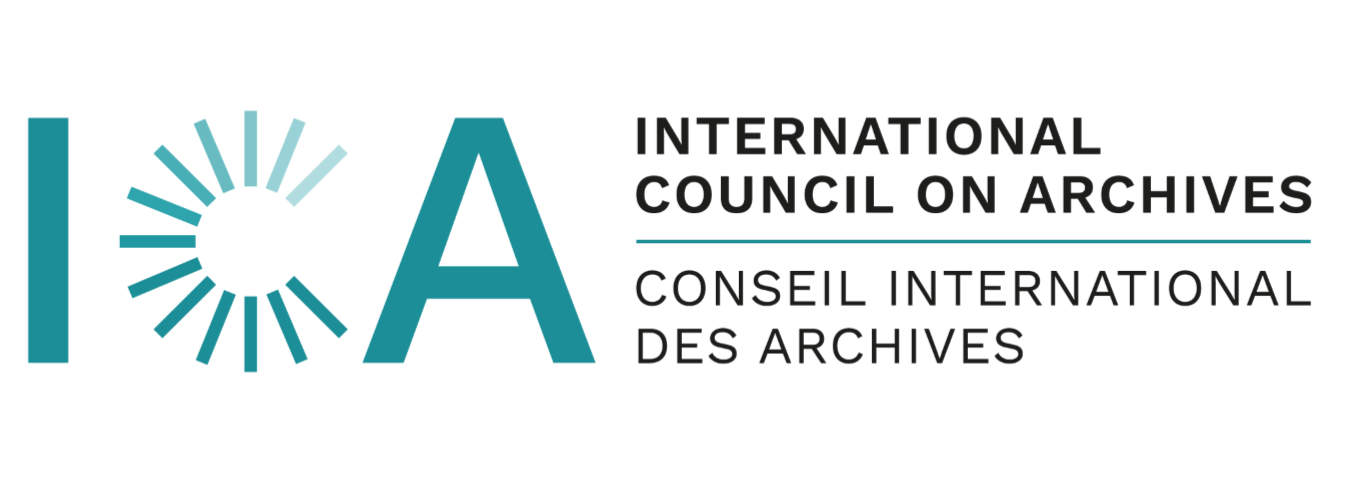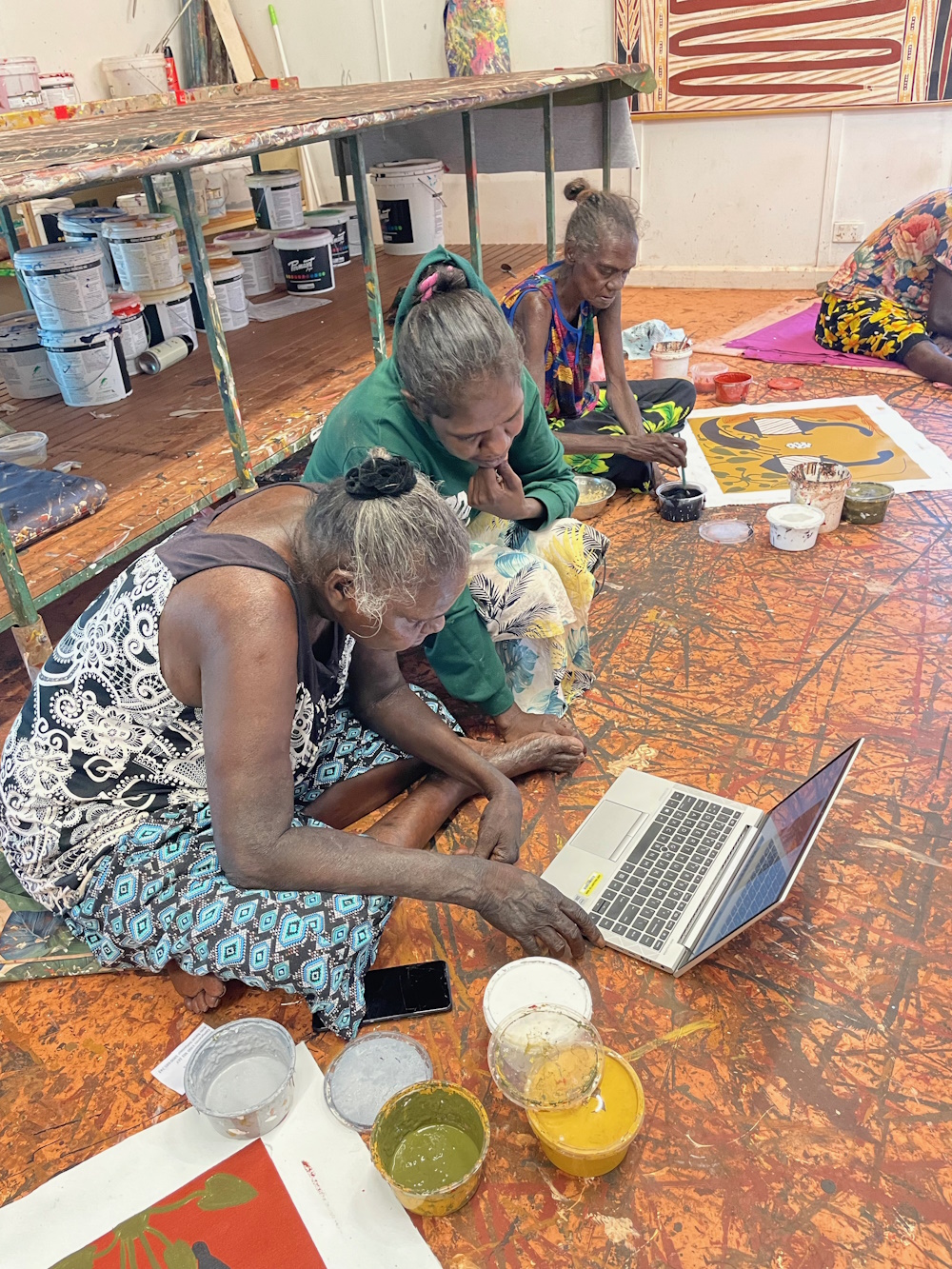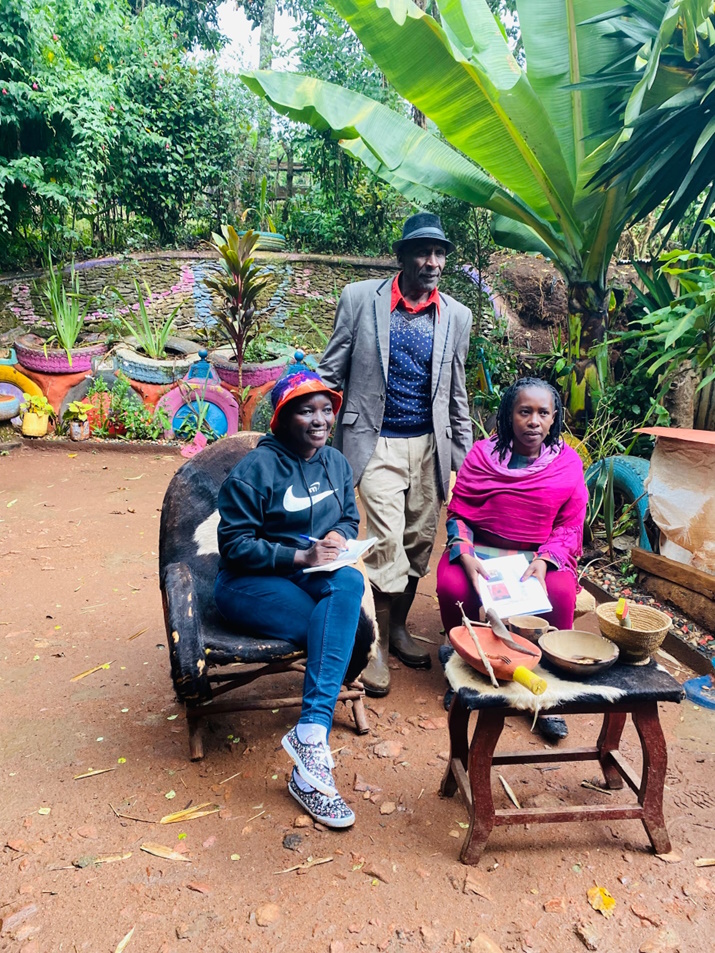
This award celebrates significant collaboration across institutional, professional, sectoral and geographical boundaries which have had a demonstrable and positive impact on digital preservation. The award includes a cash prize of £1000, a trophy and certificates.
The DPC Member vote is now open!
DPC Members, login to reveal the link to the voting form and select your first and second choices for this category.
Votes must be cast online by 1200 (BST/UTC+1) on Monday 15th July.
Each Full Member, Associate and Allied Organisation of the DPC may submit one vote.
Meet the finalists
Collaborative models of care: preserving Australian First Nations digital cultural heritage
 |
Nominees: Bula’bula Arts Aboriginal Corporation This project was designed to provide a ‘best-practice blueprint’ for non- First Nations professionals wanting to contribute their digitisation and digital preservation skills, knowledge and expertise towards the care of digital cultural heritage held by and produced in Australian First Nations communities. Originally designed by Rebecca Barnott-Clement in the role of Digital Preservation Analyst and subsequently supported by Coby Edgar of Agency Projects, the project involved digitisation of archival assets for Bula’Bula Art Centre and the completion of a DPC RAM assessment (a tool to assess an organisation’s digital preservation maturity) for Bula’Bula Art Centre and Milingimbi Art Centre. |
Kip-Agenge: Reimagining Partnerships for Digital Preservation Keiyo Indigenous Knowledge for
Future Generation
 |
Nominees: Gladys Kemboi and Carolyn Cherotich, Community Champions in Kenya, Philip Langat and Wilson Kangogo, Lazarus Rutto and Dr.Isaac Tarus, Elders and Indigenous knowledge holders, Sarah Cummings of KM4Dev and Chris Prom, University of Illinois Urbana-Champaign, Global partners include. The elders and Indigenous holders between 80-120+ years old are worried that their generations are gone; they stated death is approaching and nearing every day. One Indigenous knowledge holder noted, “we are aging, all our knowledge generations are gone. We are following them. Speed up these ideas on digital preservation of our Indigenous knowledge, tomorrow we may not be able to speak. The time is now to digitize and preserve our knowledge for the future generations”. The awakening call: What happens when the body of knowledge walks away? During the iPRES 2023 conference on digital preservation hosted by the University of Illinois Urbana-Champaign, a “heart to heart conversation” led by Chris Prom and iSchool faculty including Karen Wickett and Travis Wagner walked the talk and assured Kip-Agenge that barriers to digital preservation and climate change constraints can be lowered. The partnership extended beyond the conference, as Kip-Agenge built knowledge partnerships with the University of Illinois Urbana-Champaign for the digital preservation and sustainability of Keiyo Indigenous knowledge for future generations. Community champions, leaders, elders, Indigenous knowledge holders, and mentors like Dr. Isaac Tarus, Prof. Rose Chepyator Thompson, Ivan Butina and Rocio Sanz of UNICEF, and Stacey Young of USAID; alongside dedicated community champions like Cosmas Langat, Gloria Chumo, Julie Nyambok, Gladys Kibet, and Elizabeth Wangari from Kenya; Adamu Abdullahi, Folashade Adeboju, and Naomy Harun from Nigeria; Paul Atsu from Ghana; and Epiphane Adjadji from Benin have been at the forefront advocating for the digital preservation of Indigenous knowledge for sustainable development. |
NDSA Staffing Survey Working Group
 |
Nominees: National Digital Stewardship Alliance (NDSA) How practitioners are advocated for and trained, and how programs are staffed, organized, and evaluated, is arguably more important to successful, sustainable digital preservation than any technology. The National Digital Stewardship Alliance (NDSA), an international membership organization, recently conducted its third Staffing Survey and published the results in August 2022. A collaborative, international volunteer Working Group undertook a significant redesign of the past surveys to gather information about the current state of digital preservation staffing, creating a broader and more detailed picture than ever before. Outcomes included an open dataset and report, with significant impacts for practitioners and future researchers. |






























































































































